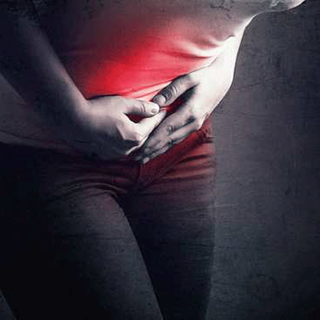Having an abortion is not detrimental to women’s health, but being denied access to a one can be, a new study published in the Annals of Internal Medicine has stated.
Denying a woman an abortion affects her mental and financial wellbeing, but this is the first study to examine the impact on women’s physical health. Researchers from this study found that women who were denied an abortion when they had wanted one were more likely than those who had abortions to report chronic diseases, persistent pain, and poor overall health five years later.
“There’s a good deal of research that shows, in the short term, having an abortion is much safer than childbirth, but there isn’t much research over the long-term,” says study co-author Lauren Ralph, an assistant professor of obstetrics, gynecology and reproductive sciences at the University of California, San Francisco, in a statement to Time.
For the study, researchers tracked the self-reported physical health of about 900 women who sought abortions at U.S. clinics between 2008 and 2010.
Overall, 328 women had a first-trimester abortion, 383 had a second-trimester abortion and 163 were turned away.
Related on The Swaddle:
How to Get an Abortion
The researchers found that 20% of those who had the first-trimester abortion reported their pre-pregnancy health as fair or poor, compared to 17.5% of women who got an abortion in the second-trimester and 18% of those who were turned away.
After five years, 20% of women who had an abortion at any of the stages reported poor or fair health. But, among women who were denied an abortion and who went on to give birth, the share of those reporting poor health had risen to 27%.
These women also reported slightly higher rates of chronic conditions including headaches, joint pain, asthma and high cholesterol. Two women who ended up giving birth also died from birth-related complications, which “could have been avoided had these women had access to the health care they had sought,” Ralph says.
India is one of the few countries in the world that allows women age 18 and older to terminate a pregnancy legally, up to 20 weeks of gestation. While there may be lack of data on denial of abortion in the country, Dr. Savita Halappanavar’s death in Ireland in 2012 at age 31 from septicemia — an infection she contracted after she was denied an abortion– set off outrage across the country and gave momentum to a growing call for change in Ireland’s Eighth Amendment that effectively banned abortion. Things changed a few years later, in May 2018, when the country voted in a referendum to legalize abortion, following which the government moved quickly to enact the new abortion legalization and terminations became legal January 2019 onward.
Related on The Swaddle:
Abortion Is Legal in India, But Not Enough Women Know It
In light of such events, and in locales where advocates of anti-abortion policies are arguing that abortions are dangerous, Ralph says the findings are especially important to protect and/or advance women’s rights.
“The argument that abortion harms women is certainly not supported by our data,” she says. “When differences in health were observed, they were consistently in the direction of worse health among those who gave birth. The findings from the study can really highlight some of the consequences if we continue to restrict access to wanted abortion.”




